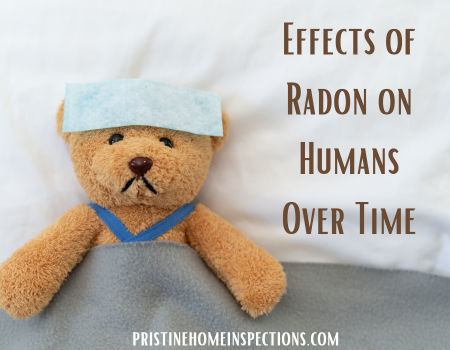Radon is an odorless, tasteless and colorless radioactive gas that naturally occurs from the decay of uranium in soil, rock, and water. While it is a common environmental contaminant, its effects on human health, particularly over long periods, can be quite serious. Understanding these effects is crucial for homeowners and renters alike, as prolonged exposure to radon can pose significant health risks.
The Nature of Radon and Its Health Risks
Radon is a byproduct of the natural radioactive decay of uranium and radium in the ground. It gets into buildings through gaps around pipes, cracks in the foundation, and other openings. As a radioactive gas, radon emits ionizing radiation that can harm the DNA in human cells.This damage is linked to an increased risk of developing lung cancer, which is the most significant health concern associated with radon exposure.
Long-Term Health Effects of Radon
- Lung Cancer: Radon decay products can be inhaled into the lungs, where they emit radiation that damages lung tissue. Over time, this damage can lead to mutations in lung cells, increasing the risk of cancer. Radon is the second leading cause of lung cancer after smoking, with an especially high risk for smokers or individuals with a history of smoking.
- Respiratory Issues: Long-term exposure to radon can exacerbate existing respiratory conditions. Individuals with chronic respiratory diseases such as asthma or chronic obstructive pulmonary disease (COPD) may experience worsened symptoms or increased susceptibility to lung infections due to the additional strain on their respiratory system from radon exposure.
- Risk to Non-Smokers: Radon poses a significant risk to non-smokers as well. While smoking increases the risk of lung cancer, radon exposure alone can also lead to lung cancer in individuals who do not smoke. Studies have shown that radon exposure is a serious health concern for all individuals, regardless of smoking status.
- Combined Effects with Smoking: When combined with smoking, radon exposure has a synergistic effect, significantly increasing the risk of lung cancer. Smokers exposed to high levels of radon are at an even greater risk than non-smokers, making it crucial for smokers to be aware of radon levels in their homes.
Importance of Radon Testing and Mitigation
Because radon is invisible and odorless, it is essential to test for its presence to understand its concentration in your home. Long-term exposure to high radon levels can significantly increase health risks, so regular testing is recommended, particularly in areas known to have higher radon concentrations.
Pristine Home Inspections offers professional radon testing services that can accurately measure radon levels in your home. Regular testing can help identify radon concentrations early and ensure that appropriate measures are taken to mitigate its presence. If high levels of radon are detected, mitigation strategies, such as installing radon reduction systems, can be employed to lower radon concentrations and reduce health risks.
Mitigation Strategies and Recommendations
- Radon Reduction Systems: One of the most effective ways to reduce radon levels in a home is to install a radon mitigation system. These systems typically include a fan and piping that vent radon gas from beneath the home to the outside, where it is dispersed safely. Pristine Home Inspections can assist in both testing and implementing these systems to ensure your home is protected.
- Sealing Cracks and Openings: Sealing cracks in the foundation, walls, and floors can help prevent radon from entering your home. While this alone may not be sufficient to address high radon levels, it is an important step in reducing overall radon entry.
- Improving Ventilation: Improving ventilation in your home can help lower radon levels. Ensuring that your home has proper airflow can reduce radon concentrations and improve indoor air quality.
- Regular Testing: Ongoing radon testing is essential to ensure that radon levels remain within safe limits. It is advisable to test your home periodically, especially after making structural changes or if you have not tested in several years.
The effects of radon on human health, particularly over time, can be severe, with lung cancer being the primary concern. Long-term exposure to radon increases the risk of developing respiratory issues and cancer, with compounded risks for smokers. Consistent testing and mitigation are essential for safeguarding yourself and your family from these risks.
For those concerned about radon exposure in their homes, Pristine Home Inspections provides comprehensive radon testing and mitigation services. Ensuring your home is free from high levels of radon is an important step in maintaining a healthy living environment and reducing the risk of long-term health issues. Taking proactive measures can safeguard your health and provide peace of mind for you and your loved ones.

